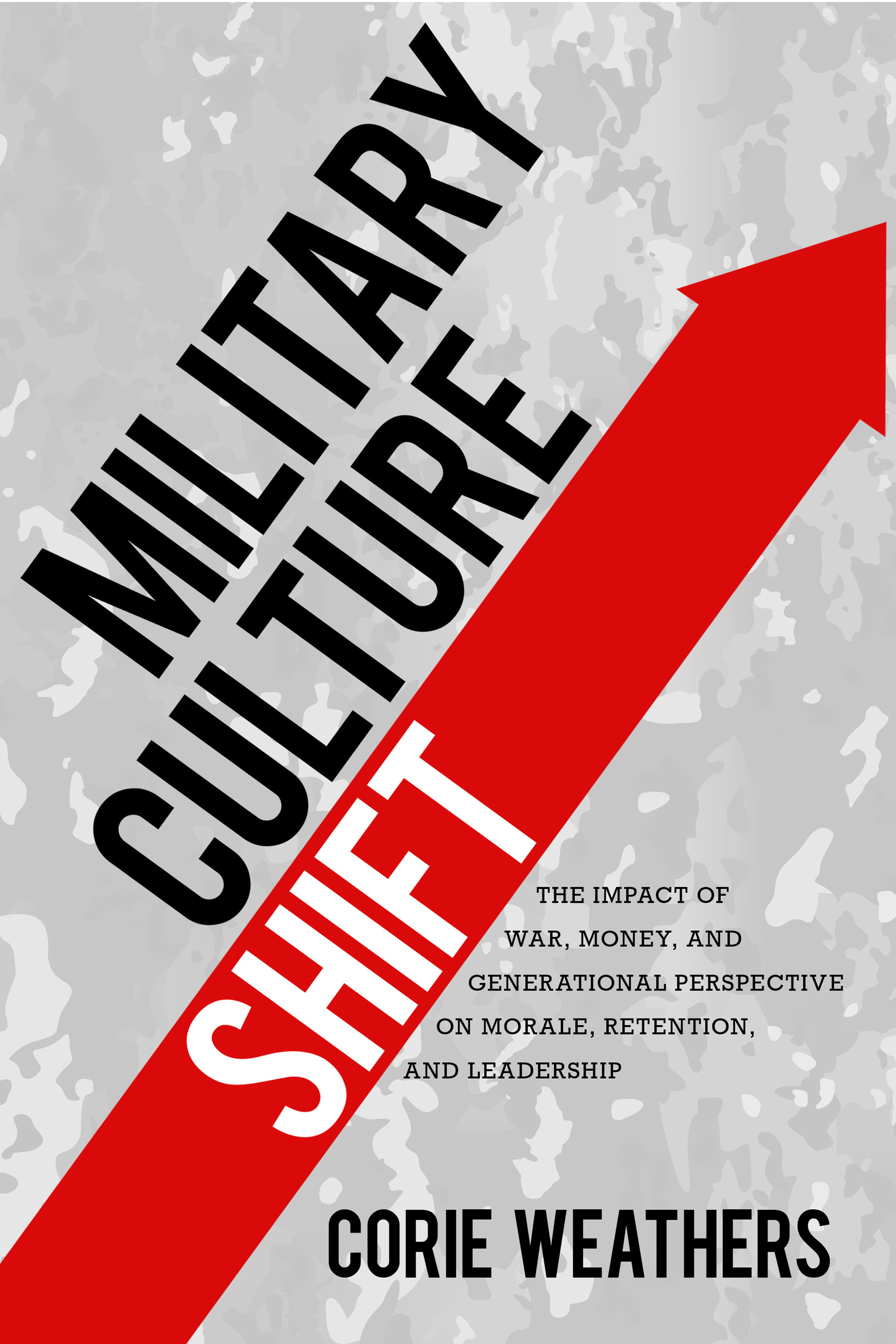Praise for Military Culture Shift by Corie Weathers
“This book is a must read for any military leader serving today regardless of rank. Corie Weathers has done a magnificent job researching in great detail the generational differences that make up our force, and then overlaying on top of them the effects of the 20-year Global War on Terror, resourcing decisions/cuts over time, and the subsequent impacts on soldiers and families. Written through the eyes of a mental health clinician and Army spouse who has treated hundreds of soldiers and couples who have struggled to keep it all together as they have lived the highest of highs and lowest of lows of Army life. This book exposes the impacts of poorly crafted policy, legislation, and local command policies, and how they have had an oversized effect on an all-volunteer force—Corie speaks truth to power which leaders should heed the warnings. Corie offers recommendations and thoughtful suggestions along the way, including a resounding reminder of what the 26th CSA was fond of telling audiences: ‘People are not in the Army, people ARE the Army.’ This book should be mandatory reading for anyone going into battalion or brigade command (or other service equivalent), general officers, DoD political appointees, and members of Congress and their professional staffs.”
—General Robert B. “Abe” Abrams, US Army (Ret.)
—
“The bedrock of American national security—and the American way of life—are the men and women who serve in our military and their families. No one has greater insight into what’s really happening and the challenges they face than does Corie Weathers. Corie takes her own advice: She ‘listens to the story’ and has done so over 15 years as a mental health clinician and spouse of an Army chaplain. She is on the front lines of the well-being of those who serve and those who are dearest to them. In this book, Corie tells the story of a proud but weary force and their families. With grace and honesty, she takes a thoughtful look at cultural shifts—generational, technological, and societal—that provide real challenges. Corie gives a clear-eyed diagnosis and a thoughtful, helpful guide for us all, recognizing that culture is in many ways the most important aspect of any group of people working together for a common purpose. If you are currently serving, have served, or care about those who do, this book is worthy reading to help better understand the trials and complexities of our most precious resource in national security.”
—Mac Thornberry, former chairman of House Armed Services Committee
—
“Military culture is an often discussed but rarely understood element of our national defense posture. It is a complex, multi-faceted web of intersecting communities, interests, and sub-cultures that define a part of our society that stand at the ready to defend our nation in times of crisis. But just as broader cultural shifts impart change on our society, similar seismic shifts tear at the fabric of our armed forces. In Military Culture Shift, author and mental health clinician Corie Weathers explores how these shifts are impacting servicemembers and their families and what this means for morale, retention, and leadership. Military Culture Shift is a phenomenal study of a vital segment of our society caught in the midst of generational change, reeling from two decades of war, and facing down the greatest threat to our national security in more than three decades.”
—Steven Leonard, senior assistant dean of the University of Kansas School of Business; coauthor and editor of To Boldly Go and Power Up
—
“Ms. Weathers’s book provides invaluable insight into understanding American military culture. The problem is not the warrior, it is society. Her project is a Herculean task, but Ms. Weathers provides us with the essential way forward—which is one our entire society must take together.”
—Edward A. Gutiérrez, director of the Center for Military History and Grand Strategy, Hillsdale College
—
“… professional and personal, often eloquent, and always clear—especially given subject matter such as sequestration. … [The author’s intent is to] show how two decades of a compilation of ‘wicked’ problems such as war (including the abrupt withdrawal from Afghanistan), a pandemic, climate change, financial quandaries at the Department of Defense and the stress of relentless service are affecting how and why the US military organization doesn’t always work. … Weathers suggests remedies and tries to ‘present a narrative to help you develop empathy for the people involved.’ … The story she chooses to tell is indeed vast—but Weathers uncomplicates things. … Think of her book as a nuanced, empathetic explanation of how we got to this point, what we can learn from being here, and how we can use the opportunity to improve. The message is dire but the delivery is soothing. … In addition to the insightful considerations in the narrative, she offers at least 15 pages of ‘Leadership Tips and Questions’ that are useful anyone who deals with other humans.” —J. Ford Huffman, National Defense University Foundation
